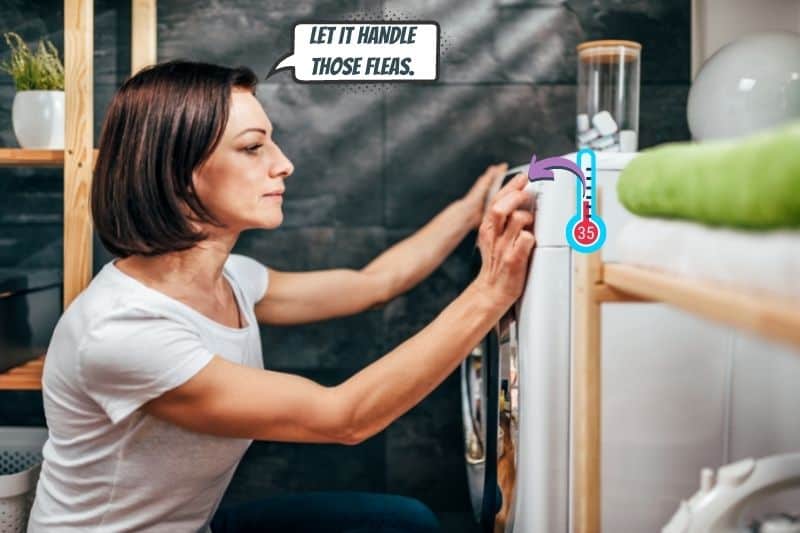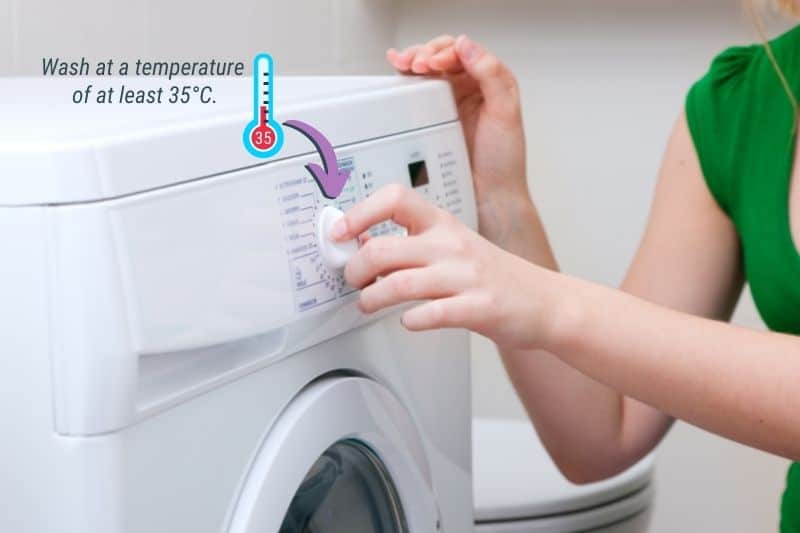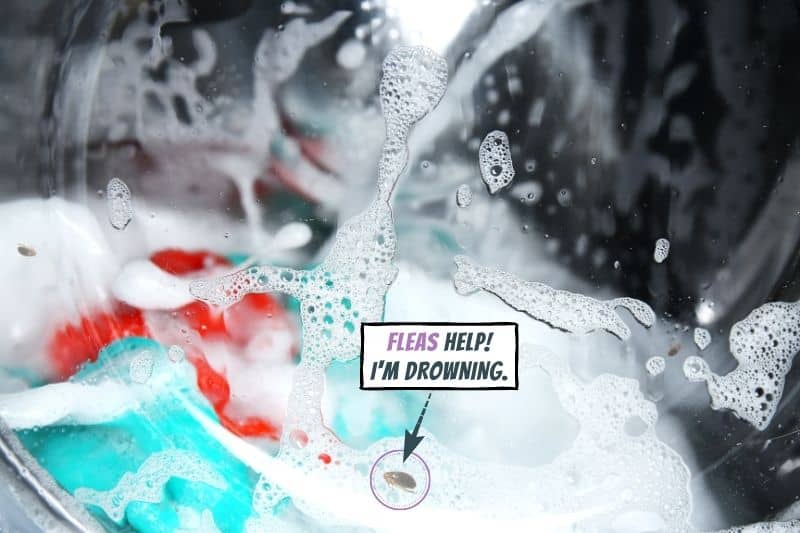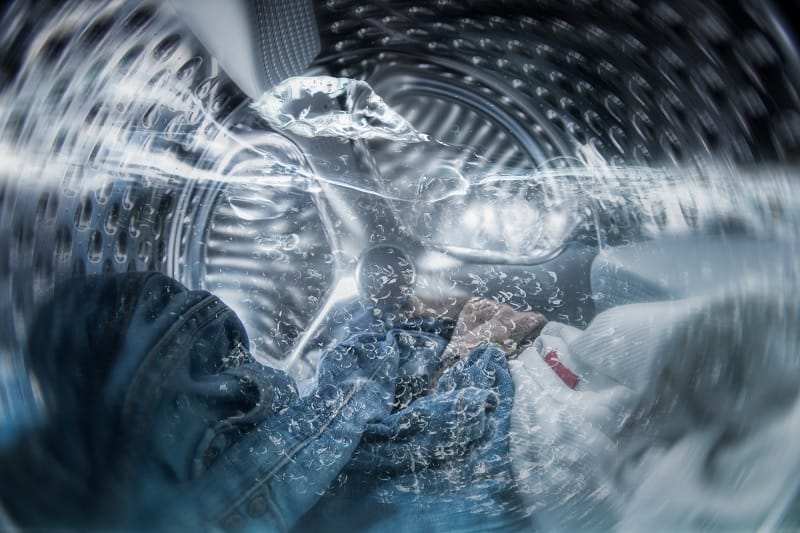Fleas are unfortunately common in homes with pets, and they can be incredibly difficult to tackle due to their small size and evasiveness. If fleas end up in clothing and fabrics, using the washing machine is often the first step people will take to tackle the problem. But does it work?
Can You Kill Fleas by Washing Your Clothes?
Washing your clothes in the washing machine should kill them. The mixture of the warm water of your washing machine and the detergents that you use should be enough to kill most of the fleas and eggs that have taken up residence in your laundry.
Washing clothing and fabrics might not be a 100% cure for a flea infestation, but as long as you wash absolutely everything, it will take a sizable chunk out of the population.
In addition to washing your clothes, make sure to wash bedding, curtains, fabric covers for furniture, towels, and anything else that might have been exposed.

Do Fleas Drown in the Washing Machine?
Washing clothing might be an effective way to tackle fleas, but it is not the water itself that actually does the job. Instead, it is a combination of the heat of the washing machine and the detergents that you use.
Fleas are surprisingly resilient to water, and they can actually survive for as much of a week in water.
If you need to hand wash or soak clothing, make sure the water is hot enough and you use enough detergent as even fully submerged, it would take at least 24 hours for water alone to kill fleas.
According to FleaScience.com, the water should be at least 35°C (95°F) to kill fleas.
Do Fleas Die in the Tumble Dryer?
Although the tumble dryer doesn’t have the added anti-flea benefit of laundry detergent, the high temperature will help to kill any fleas and eggs that were left behind after the laundry came out of the washing machine.
How Do Fleas End Up in Clothing?
Fleas can spread very quickly around your home. Adult fleas are very mobile despite being dependent on their host, so they rarely stray too far from here. However, flea eggs might be laid in the fur of animals, but they are smooth, and so do not stick.
This means that they can drop out and end up in your carpets and furnishings around your property. After a few weeks, these flea eggs will hatch and become adult fleas, ending up all around your home.
Once hatched and in search of food, these fleas will end up in your bedroom, wardrobe, in your curtains, and just about everywhere else.
Top Tips for Tackling Fleas in Clothing
When it comes to tackling fleas in clothing, there are a variety of ways that you can enhance the chances of your washing machine killing them.
1. High temperatures

Always use the highest possible temperature that the garments are able to handle safely. Fleas don’t like high temperatures, so by washing clothing as high as possible, you give yourself the best chance of tackling the problem.
Just make sure that you don’t wash the garments higher than they can handle otherwise they will shrink or fade.
2. Small loads
If laundry gets caught up and tangled together, it becomes more likely that the fleas will manage to survive. Wash your laundry in smaller batches than you normally would to make sure it gets properly cleaned.
3. Laundry additives
There are additives that can boost the power of a washing machine to tackle pests like fleas. These additives are added along with detergent and typically use non-toxic chemicals as active ingredients.
4. Preventative measures
Washing affected clothing alone is unlikely to be enough to tackle a flea problem. Whilst it will get rid of any pests actually in your clothing, if you haven’t tackled the problem in the rest of your property, your efforts will prove to be in vain.
With infestations of pests like fleas, preventing the problem is easier than curing it. Make sure that your pets are always up-to-date on their flu treatments, and at the first signs of an infestation, treat your home and carpets with insecticides.
Regularly vacuum your carpets and other soft furnishings to remove eggs, larvae, and pupae before they have a chance to become fleas.

Lover of coffee, painting, and all things cute and fluffy. I’m always on the lookout for easier, more gentle ways to tackle awful household chores.






